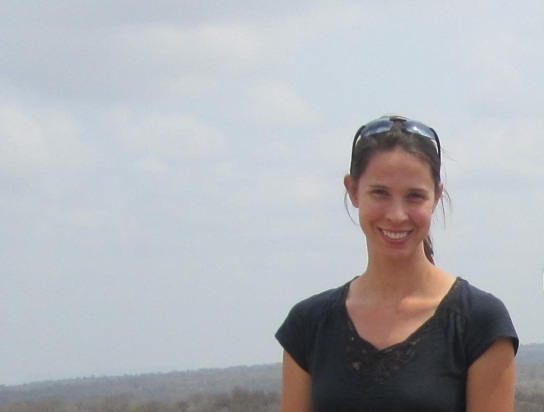A Life Defined by Impact, CGD-Style
Working in Maputo, Mozambique, may seem completely different from working in Dupont Circle’s cluster of think tanks, but to Sarah Rose, they represent the same thing: her desire to improve US aid effectiveness. Starting her career at the Center for Global Development in Washington, DC, gave her the foundational skills to conduct research and critically analyze policy, while allowing her to focus on specific issues that had piqued her interest for many years. “CGD’s focus on rich-country policies toward development helped solidify my interest in pursuing a career related to US government policy toward foreign assistance,” Rose recalls when asked how her experiences shaped the path she is on today.
After graduating from Georgetown with a masters of public policy in 2006, Rose started what would be a year-and-a-half-long stint in CGD as both a research assistant for senior fellows Todd Moss and Vijaya Ramachandran and a policy analyst for former CGD senior fellow Steve Radelet and program director Sheila Herrling. She contributed extensively to CGD Notes such as the analysis of the Investment Climate Facility for Africa and the rise of China’s Export-Import Bank in Africa, and she helped develop the Millennium Challenge Account (MCA) Monitor Initiative, which is now part of CGD’s Rethinking U.S. Foreign Assistance program. That work, in retrospect, defined a significant portion of her career.
 Sarah Rose, research assistant and policy analyst from 2006 to 2007While focusing much of her research and analysis on the best ways of incorporating measures of natural resource management into the Millennium Challenge Corporation’s indicator-based country selection system, Rose was offered the invaluable opportunity to put her research into action. “I was lucky to have worked on the MCA Monitor at a time when the US government was in the early phases of a new model of foreign assistance,” she says. “When a position came open at MCC to work on country selection, I jumped at the chance to contribute directly to this innovative aspect of the MCC model.” Her work at CGD eased her transition to a development policy officer in 2007, and she was later promoted to a senior development policy officer, a position she held from August to December 2010. Rose moved in January 2011 to Maputo, where she now works as a monitoring and evaluation specialist for USAID/Mozambique’s Integrated Health Office.
Sarah Rose, research assistant and policy analyst from 2006 to 2007While focusing much of her research and analysis on the best ways of incorporating measures of natural resource management into the Millennium Challenge Corporation’s indicator-based country selection system, Rose was offered the invaluable opportunity to put her research into action. “I was lucky to have worked on the MCA Monitor at a time when the US government was in the early phases of a new model of foreign assistance,” she says. “When a position came open at MCC to work on country selection, I jumped at the chance to contribute directly to this innovative aspect of the MCC model.” Her work at CGD eased her transition to a development policy officer in 2007, and she was later promoted to a senior development policy officer, a position she held from August to December 2010. Rose moved in January 2011 to Maputo, where she now works as a monitoring and evaluation specialist for USAID/Mozambique’s Integrated Health Office.
Years later and even while living on a separate continent, Rose still applies CGD’s research to her various duties. “CGD’s work continues to help me in my work today,” she says. “Now, working in M&E at USAID, I’m excited to be applying USAID’s new evaluation policy, stimulated in part by CGD’s When Will We Ever Learn? Improving Lives Through Impact Evaluation…The completed HIV/AIDS Monitor remains an excellent bank of research and analysis, and I look to the Global Health Policy blog for the latest debates and studies on foreign assistance policy in health.”
Rose recalls that CGD’s distinct mix of serious research and collegial atmosphere offered vast opportunities for the entire staff to interact, brainstorm, and work together—from junior staff meetings and Research in Progress meetings (RIPs) to spontaneous cookie runs, envelope-stuffing extravaganzas, and happy hours. This collaborative nature is why she advises anyone pursuing a similar career to “always seek and recognize opportunities to learn from colleagues at all levels—regarding everything from technical knowledge and research skills (not to mention Stata coding!)…to problem solving and career advice.”
“I think that those who work at CGD are influenced by the organization’s unswerving commitment to high quality, rigorous work, and carry those values with them into their next steps,” she adds. Clearly, this approach has an enormous impact on Sarah Rose’s success—and is what makes her a true “CGDer” for life.
Sarah Rose now lives in Maputo, Mozambique with her husband Eric Lundgren, who is a Country Representative for Africare in Mozambique.

